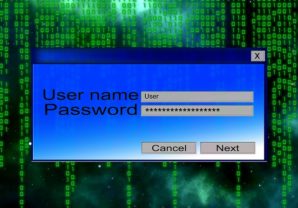
In an age when countless millions of people live on the Internet, it should not come as too big of a surprise that many identity theft thieves have set up shop online.
 While the numbers vary, it is estimated in a 2016 identity fraud study the total number of identity theft victims for the previous year came in around 13.1 million consumers, with losses of approximately $15 million.
While the numbers vary, it is estimated in a 2016 identity fraud study the total number of identity theft victims for the previous year came in around 13.1 million consumers, with losses of approximately $15 million.
According to press release comments from Al Pascual, research director and head of fraud & security at JAVELIN, “Fraud is evolving at a frantic pace although the amount of fraud has been relatively flat over the past four years. This just shows that when the industry cracks down on one type of fraud, criminals quickly shift their attack vector and area of operation. The study this year reinforced that with industry, technology and consumers working in concert, people can best fight back against the fraudsters.”
With that in mind, what are you doing as a consumer and/or business owner to distance yourself from identity theft thieves?
Be Pro-active and Not Reactive
To start off with, ID protection reviews are great weapons in the fight against identity theft.
Such programs zero-in on important factors consumers and business owners would take into account when reviewing identity theft protection providers.
Factors to look at include protection, price, member services, recovery guarantee, additional services, awards and accolades, customer experience and expert review. When all factors are added up, the program provides an easy to understanding overall score.
While knowing which provider to choose for your identity theft protection is certainly important, what you do on your own behalf to stay safe is also critical.
Stop for a moment and think about the number of times you left a credit card receipt sitting around for all to see. Do you remember the time or times you gave out credit card account info or other personal financial details on an unsecured computer? How about when you gave your Social Security number to someone posing as a government worker? These and other means of stealing your personal identity happen all too often on a daily basis.
In order to lessen the chances you will be the next victim, remember to:
- Know who you are talking to – While you are oftentimes asked for your credit card information, Social Security number of even email address, know exactly who you are talking to. Thieves will oftentimes pose as someone you know, sending you an email with a request to download an attachment. Once you download the attachment, malware can spread to your computer, making it susceptible to hacking. Once that happens, you could have a major personal or business data breach on your hands. If something sent to you online seems suspicious, DON’T open it;
- Be wary of public computers – Even though many public computers (libraries, hotels etc.) have system software installed to prevent viruses, how can you be 100 percent sure the machine you’re using away from home is truly safe? With this in mind, avoid typing in personal information (bank account numbers, information about where you live or work, tax data etc.) when away from home. Inputting such data sets you up for potential identity theft, not to mention little recourse to find out who has stolen the information. If you’re traveling with a laptop, make sure you can proceed in a safe and secure hook-up , but once again, don’t advertise personal data online;
- Avoid leaving data exposed – Have you ever been on a computer in a public library or other such setting with countless people around? Let’s say you download credit card information or other such personal data and leave the computer for even just 30 or 60 seconds. If you think that is not time enough for someone else nearby to copy that data, think again. Never walk away from a public computer with your personal data there for all to see. Venues (including public WiFi networks) where people gather are ideal for identity theft thieves to swoop in and recover data, leaving a wake of problems behind.
If it sounds like you have a busy job on your hands of protecting your personal data, you do.
The best way to distance yourself from those looking to turn your personal and financial life upside down is to always be pro-active.
Otherwise, you will be reacting to when your data has been compromised.
Image courtesy of pixabay.com

Leave Your Comments